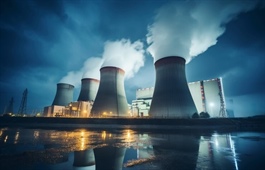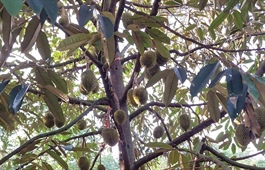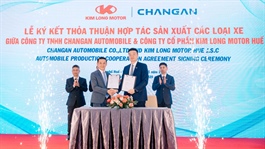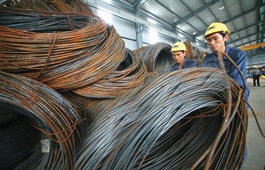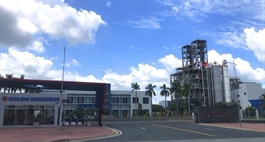Offshore wind must be utilised for energy security
Offshore wind must be utilised for energy security
The Vietnamese government is pushing for an offshore wind energy pilot this year to hit its power master plan goals and ensure energy security.
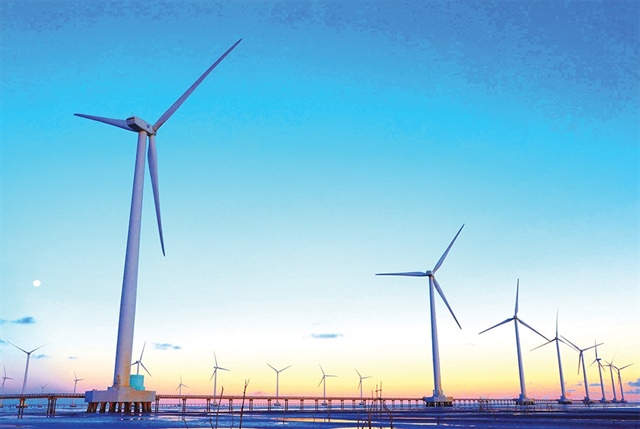
Offshore wind must be utilised for energy security |
At a conference on ensuring adequate electricity supply towards 2030 in Hanoi last week, Minister of Industry and Trade Nguyen Hong Dien requested the ministry (MoIT) and Vietnam Electricity to urgently complete procedures so that it can issue a framework for offshore wind (OSW) power prices.
“The Electricity and Renewable Energy Department under the MoIT collects the needs proposed by local businesses, ending the first phase before January 20 so that the ministry can make a preliminary assessment and submit it to the government for permission to deploy 6,000MW in phase 1,” Dien said.
“At the same time, it must implement the necessary steps both to review and supplement the adjusted Power Development Plan VIII, maximising offshore and onshore wind power for domestic and export needs,” Minister Dien added.
Under the current national power plan, the target for OSW capacity is set at 6,000MW by 2030. However, no project has been formally assigned for development so far.
According to European Chamber of Commerce in Vietnam chairman Bruno Jaspaert, businesses are having difficulty implementing the country’s first OSW power projects because everything is still on paper only.
“The time to develop and build an OSW venture usually takes 6-7 years, of which the first 3-4 years are for completing the planning and finance, then at least three years for construction. To achieve the target of 6,000MW of OSW power by 2030, the first projects must start in 2027,” he said.
Jaspaert proposed Vietnam to quickly complete the legal framework for OSW power, establish clear support mechanisms, and ensure the rights of all parties involved.
“In particular, all licences need to be ready and all obstacles need to be resolved within the next six months to stay on schedule. In addition, information exchange and coordination between relevant ministries and sectors also have to be improved,” Jaspaert said.
General director of Vietnam Oil and Gas Technical Services Corporation Tran Ho Bac noted that in OSW power development, all countries in the world go through three stages.
“In the first phase of any pilot model, the state will cover the entire undertaking, determine a marginal profit margin, scale to assess potential, design suitable for the sea area, and assess the impact on the environment,” Bac said.
“In the second phase, development is conditional, meaning there is support from the state, covering for a certain period and having price support. The third phase is a development phase, organising price bidding. In addition, it is necessary to consider the localisation policy.”
In late 2024, the MoIT released the first draft decree, detailing a number of articles of the Electricity Law on renewable energy and electricity, in which it proposed several incentives and support policies for solar and wind power projects with energy storage systems. These include giving priority to mobilising power sources from such initiatives.
The most notable content is about policies for developing OSW. To encourage the development of this power source, the ministry proposes that projects are exempt from sea area use fees during the construction period; and there is a 50 per cent reduction in sea area use fees for 12 years from the start of operation.
An undertaking could also be exempt from land use fees and land rent during the construction period, and continues to be exempt according to investment and land laws.
In addition, state-owned enterprises with 100 per cent charter capital investing in OSW power projects will be considered and decided on credit extension beyond the limit prescribed by the Law on Credit Institutions.
However, the condition for such ventures to enjoy these incentives is to be decided or approved for investment before January 2031.
For foreign investors implementing offshore wind schemes, the ministry proposes that they have implemented at least one project of similar scale in Vietnam or elsewhere. The total net asset value in the last three years audited must also be larger than the expected total investment of the project.
At the same time, these undertakings must involve Vietnamese enterprises, with the condition that the foreign investor’s capital contribution does not exceed 65 per cent of the charter capital in the joint venture.







